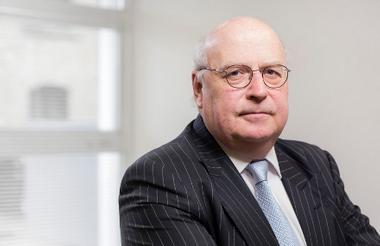New rules giving the Charity Commission power to disqualify trustees are too broad, too vague and are likely to leave the regulator facing judicial review, the chief executive of NCVO, Sir Stuart Etherington, said yesterday.
Speaking at a charity governance event yesterday, Etherington said that while new rules introduced as part of the Charities Act 2016 would help the Charity Commission succeed in its aim to “shoot the bad guys”, they could result in “a lot of collateral damage on the way”.
“The right balance is critical and part of that is about ensuring the powers are framed in a way that doesn’t discourage the good,” he said. “There has to be a relationship between intent and guidance.”
Etherington said references in the guidance to “subjective terms” like “public trust” and “personal credibility” are “too broad”.
“They are not specific enough in the circumstances and that’s where we would like to see some revisions," he said.
“There are a lot of individuals in this world that lack personal credibility – some of which are in politics. But I don’t think they should be disbarred from being charity trustees.
“When you use terms like ‘personal credibility’, this is a very subjective judgement.”
Similarly, on the “public trust and confidence” criteria, Etherington said, “just having a ‘what the public thinks’ type of criteria isn’t great”.
“What the public thinks is important but it shouldn’t determine this detail because what the public thinks changes. And I suspect what the public thinks from one place to another might be somewhat different.”
Etherington also questioned the clarity of the bandings relating to the period of a trustee ban.
“It is unclear in the guidance about what type of activities drive you to each of these bands. We need to be more specific - particularly as the right of appeal in relation to this is concerned."
He said the Commission's proposals were "likely to end up with judicial review".
“If this is unclear, it is very likely that trustees could take you to court over this," he said. "It’s not in anyone’s interest for this to be clarified in the court. So it’s important that it’s clarified before.”
Etherington said that while it is “important for the Commission to have these powers” and “necessary to get the bad guys”, is was important to get the balance right.
“The bad guys can do irreparable damage to the brand of trust and confidence in charities. That’s what this is about,” he said. “So the assessment that you have to make in these powers, is whether or not it’s about getting the bad guys and possibly at the same time taking down some of the good guys – or at least preventing people from wanting to come forward and be any sort of trustee.
“This is a very fragile sector. It consists of hundreds of thousands of people who give up their time voluntarily in order to govern civil society organisations that exist for the public good.
“The Commission has taken a more rigorous regulatory approach in the last four or five years – which I certainly think is reasonable. They are a regulator. But there are points in which some of what we have seen, which is in the public domain, has been done inappropriately in my view.”









